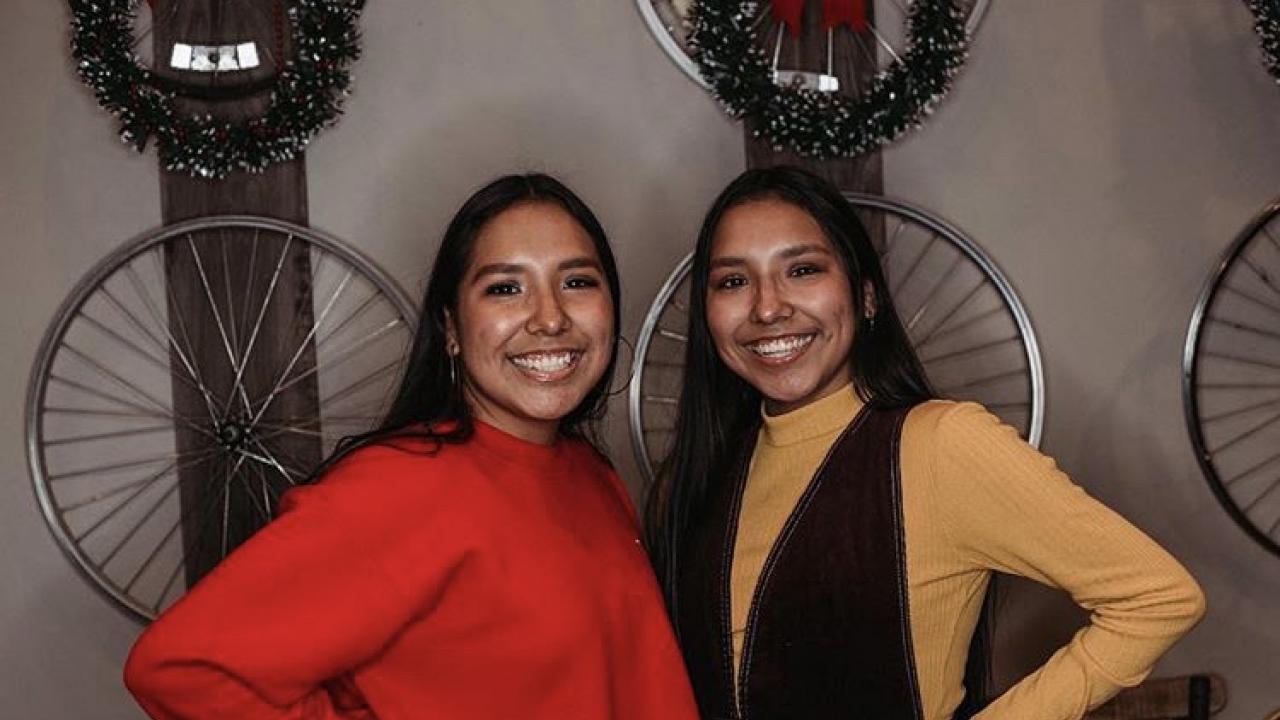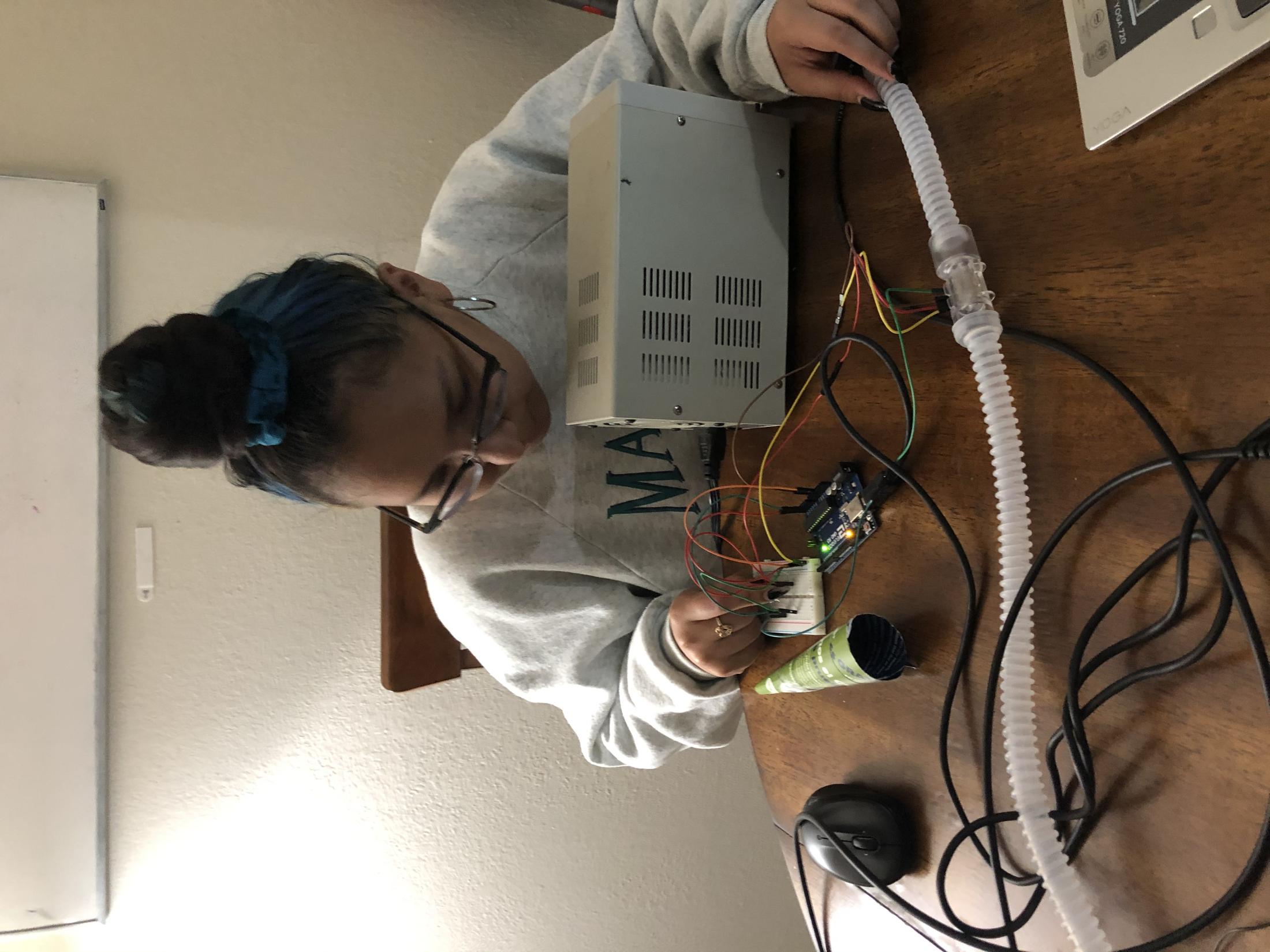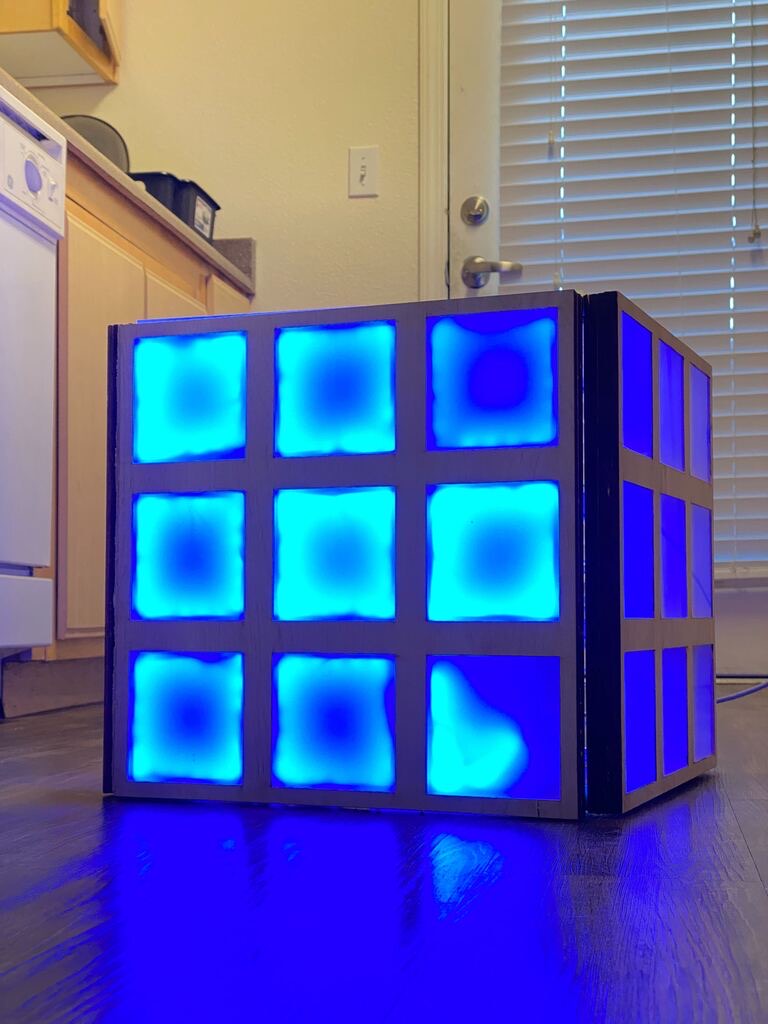
ECE Students Vanessa and Victoria Liera's Research at UC Davis
Quick Summary
- Recently famous for speaking alongside Chancellor May on diversity and inclusion, the sisters share more about the research-oriented classes that influenced them
Sisters Vanessa and Victoria Liera, Electrical Engineering (ECE) students and founders of the Club Of Future Female Electrical Engineers (COFFEE), appeared on a recent episode of UC Davis’ web show Face to Face with Chancellor May, where they discussed diversity, equity, and inclusion in the ECE department and elsewhere at UC Davis. They were also featured in the November 8th episode of the show The College Tour, available through Amazon Prime Video and a variety of streaming apps.

Both Vanessa and Victoria currently serve as board members of COFFEE, as well as Engineering Ambassadors, who represent the College of Engineering by hosting live chats, on-campus tours, and volunteering at industry, social, and panel events. They also have on-campus jobs where Vanessa is a peer advisor and Victoria is a lab assistant.
The sisters participated in a UC Davis ECE department course sequence known as EE-Emerge, and have mentioned how this course spurred on their interest in engineering.
In this program, the fall quarter course teaches skills such as CAD design, soldering, electronic assembly, 3D printing, and how to present your work to fellow professionals. The winter quarter gives students a chance to design and build a project of their own in teams, forming a task list and a budget, and then in the spring quarter they present what they built to the campus and the industrial community at events such as the ECExpo and UC Davis’ Picnic Day. Despite the media stereotype of engineers as socially awkward introverts, the program emphasizes social and teamwork skills to prepare students for work in industry.
Vanessa describes her first EE-Emerge project and how the class developed the idea. “During the winter and spring quarters of my sophomore year I worked on a project called FourFace with a group of seven other people. FourFace was an interactive game cube that used capacitive sense technology to create a competitive memory game. Everyone in the class came up with ideas for a project and then had to decide which project to work on based on the ones that were selected by our professor and TA.”
Although Covid-19 forced the course sequence to go fully remote in 2020, the program still taught useful engineering skills.

“Taking EE-Emerge in person and remotely were two different experiences in the winter and spring quarters. For the fall quarter of my sophomore year, we got to gain experience with soldering, creating schematics, working on PCB designs, using the machine shop to 3D print and laser cut, and using programs like Altium. Also, we worked on a few projects, including a 3D printed battery enclosure and a small LED sign. During the fall quarter of my junior year, we were not able to create these small projects because we were remote, but we still gained most of the same skills as [in] my sophomore year.”
During the winter and spring quarters of the sisters’ junior year, they worked on an electronic face mask, EasyBreathe. The EasyBreathe mask allows medical personnel who have to wear a face covering during working hours to move more comfortably. Instead of splitting up into groups and working on different projects, the whole class worked on different parts of this one project. Vanessa and Victoria were involved with testing, validation, and product analysis.
“Validation, testing, and product analysis focused on selecting components to use for the masks that met defined requirements. We measured the flow rates of different fans, calculated battery life, measured the decibels of noise the system produced and the range of voltages required to operate the device. In addition, we performed a total system cost analysis and recommended alternative parts to minimize production costs while maximizing profits.”
Now, during their ECE senior design class, they are building and improving an autonomous inspection vehicle.
Vanessa appreciates and has learned much from her UC Davis engineering education.
“Coming in as a first-generation student with no prior experience or connections to electrical engineering everything I’ve learned is new, so seeing what I can do with each of these projects, given that I’ve never worked on anything similar, has been very rewarding.”
